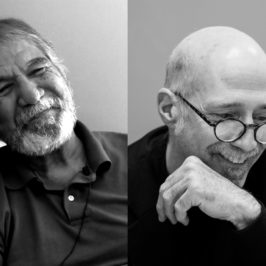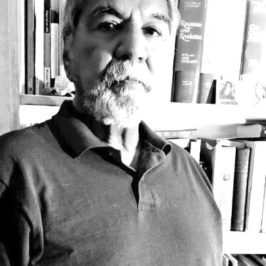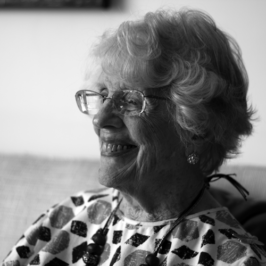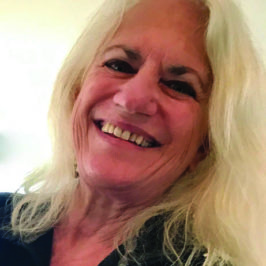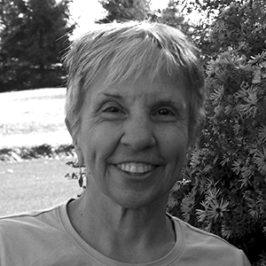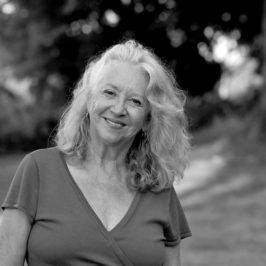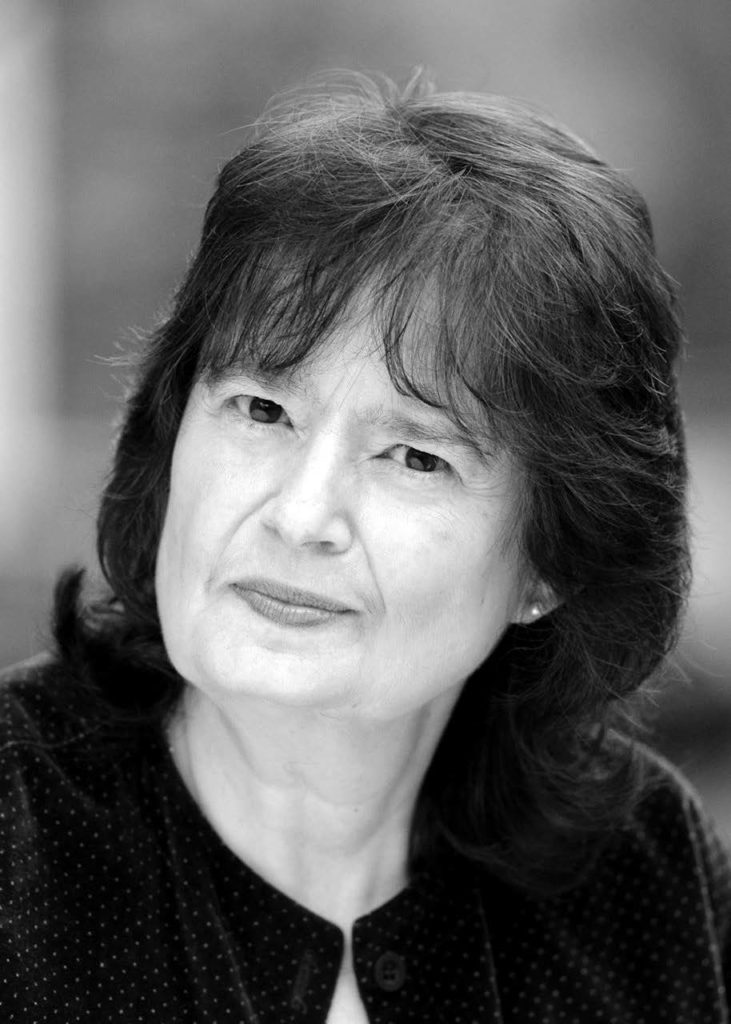

Descendants of the Holocaust, featuring pieces by Fedora Horowitz, Fran Markover and Wilderness Sarchild.
7 minutes
TRANSCRIPT
On January 27, 1945, Allied forces liberated the Auschwitz-Birkenau concentration camps. The United Nations later designated January 27 International Holocaust Remembrance Day. It honors the six million Jewish victims of the Holocaust and the millions of other victims of the Holocaust and Nazism.
Fedora Horowitz grew up in Romania. She said that as a child, she gave life traits to the objects around her. One of those objects was a shawl she named Bertha. She said, “The shawl gave us warmth and witnessed our family tragedies. It represented a link between the generation of my grandmother and her great granddaughter.” Here’s an excerpt from Fedora Horowitz’s story “Bertha.”
In my immediate family, no one seemed to have any doubt as to who had saved my mother’s life during that fateful day, when, misled by wrong information, she left us in the warmth and security of our hideaway place and went downtown to the police station to receive the safe pass, the pass which would allow the Jews the freedom to walk after dark in Yassy, Romania, during the first months of World War Two.
The young man who brought us the news that morning was breathless. “The head of the Jewish community and the chief of police have come to an understanding,” he said. “Everyone who will identify himself as a Jew at the police station will receive a pass for himself and his family.” Then he ran out without waiting for questions, in his hurry to deliver the message to other houses.
Six pairs of eyes interrogated each other. “I will go,” volunteered my mother. She was twenty-nine years old and had a lot of courage. Shivering, she threw Bertha over her slender shoulders for warmth and to keep her company and left. She told us so many times what happened to her afterwards that it has been forever imprinted in my memory.
“The streets were unusually quiet,” she began. “I could hear my steps on the pavement, one, two, one, two. I started wondering if I would see someone, anyone. All of a sudden the silence cracked. At first I heard a long wail. Then there were shouts and gun firing. I stopped at the intersection of Lozonsky and Cuza Voda streets and peered through the length of Cuza Voda before crossing it. What I saw made my blood freeze. Two soldiers dragged a naked woman, one pulling her long hair, the other stabbing her ribs with a bayonet. Her screams filled the air, drilling the nerves of my spine.”
“All of a sudden I heard a familiar voice saying angrily, ‘Woman, where are you going?’ It was Kolya Cimpoiesu. I knew Kolya Cimpoiesu. He and his brother George were my uncles’ business partners. He was a taciturn man who spoke little.”
“I told him where I was going, but he didn’t seem to hear me.”
“He covered my head and face and took my arm gently. ‘Let’s go home. I’m going to take you home now,’ he whispered.”
“Kolya,” my mother pleaded with him, “I’m going to the police station. It is our only chance. They issue safe passes for Jews. Please, Kolya, let me go.”
“I looked into Kolya’s eyes,” my mother continued her story. “They were full of gripping sadness, like the entire sadness of the world was concentrated in them.”
Kolya brought my mother home safely and stayed with us for twenty-four hours not allowing anyone to leave the house. The date was September 30, 1941, the day of the big pogrom when ten-thousand Jews lost their lives. They were those less fortunate than my mother, who were lured by the rumor started by the Romanian police themselves.
With all respect and everlasting gratefulness to Kolya Cimpoiesu, I felt that our Bertha had a part in it. How else can one explain the miracle that Kolya met my mother in the last second before she was going to cross into the main street and its sea of blood? It was Bertha’s doing. I am sure of it.
An excerpt from Fedora Horowitz’s story “Bertha” from Passager’s 21st Anniversary anthology, published in 2011, Burning Bright.
Seems like once the camps were liberated, that would’ve been the end of it. But trauma lingers.
Here’s a poem by Fran Markover: “Memorial for My Name.”
Great-grandmother
shadows over me,
last dream,
crying out our name —
Feigele, Feigele.
Her spirit covers me
like a prayer shawl
in the night’s chill.
Great-grandmother
yearns for her family,
last dream, whispering
my story, my name.
Among the incense
of pogrom ashes
she pleads, who’d
harm an old woman?
Great-grandmother
hovers over me,
light as a firebird,
last dream.
Orange flames
that consumed her
at Buchenwald,
consume me,
shivering in my bed,
burning.
Fran Markover’s “Memorial For My Name” from her book Grandfather’s Mandolin.
And from Wilderness Sarchild’s book Old Women Talking, more about the long-term trauma of The Holocaust. Here’s her poem “Roots.”
It’s hard to know your roots
when your ancestors
were forced to leave
every place they ever lived.
When your ancestors —
six million of them —
were incinerated in gas ovens.
When those that survived
would never talk
about the past.
It’s hard to know your roots
though they live
in the shape of your nose,
in your longing and despair,
a way of speaking,
a way of thinking,
a way of looking over your shoulder,
always prepared
to run.
“Roots.” Wilderness Sarchild.
To buy Wilderness’s book Old Women Talking or Fran Markover’s book Grandfather’s Mandolin or to subscribe to or learn more about Passager and its commitment to writers over 50, go to passagerbooks.com. You can download Burning Bright from Spotify, Apple and Google Podcasts and various other podcast apps.
For Kendra, Mary, Christine, Rosanne, and the rest of the Passager staff, I’m Jon Shorr.
Fedora Horowitz not pictured.

